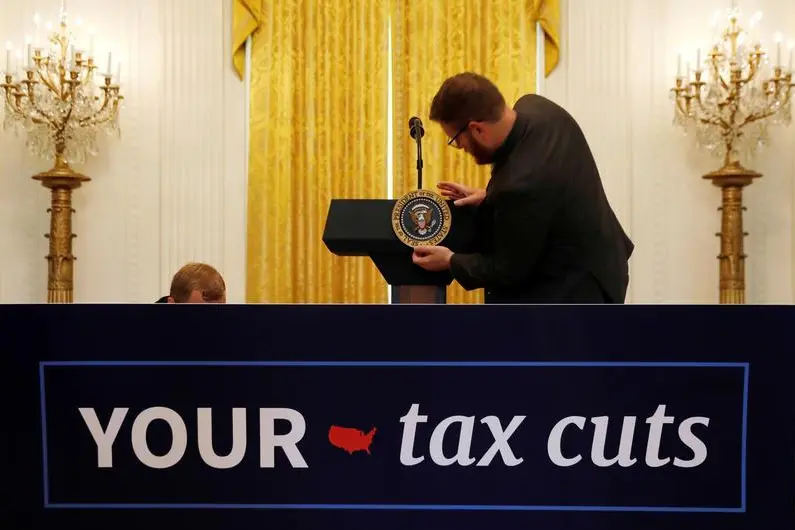PHOTO
SAN FRANCISCO/NEW YORK - Undoing Donald Trump’s tax cuts is harder than it looks. Democratic presidential contenders want to scrap the White House’s signature legislative win. The measure mainly helped companies and the wealthy but also provided some breaks for the middle class, making it tricky to roll back. And a corporate tax hike could trigger a market downturn.
The president’s sweeping tax overhaul, signed into law in 2017, isn’t popular. That’s largely because households with the lowest 60% of incomes saw their bills to Uncle Sam drop less than $1,000 on average, according to the Tax Policy Center, while the top 1% got an average $33,000 windfall. That’s why Senator Elizabeth Warren has proposed a wealth tax and Bernie Sanders has suggested raising the top individual rate to 52% from 37%.
Corporations, which now pay a 21% tax rate compared with 35% previously, also make a juicy target. S&P 500 Index earnings rose nearly 23% last year, according to data from Refinitiv, and companies bought back a record $806 billion of their shares.
Warren and Sanders, who will appear at Tuesday night’s Democratic debate, are among those who want to reverse the cut, saying that money can be better spent on things like health care and education. Yet taking a bigger bite out of company earnings could hit markets and investment, and slow the economy. The S&P 500 has risen 13% since the tax cuts went into effect, generating a wealth gain of $3 trillion.
Another thorny issue affects high-tax areas like New York and California. Senators Kirsten Gillibrand and Kamala Harris have proposed repealing the $10,000 cap on state and local tax deductions. But that was one of the few revenue offsets in the Trump package, and repealing it would offer little benefit to the country’s heartland states.
Contenders haven’t detailed what they would do with other elements that help average Americans. The doubling of the standard deduction reduced taxable income by $24,000 for joint filers, and came at the expense of many itemized deductions that benefit mostly upper income households. Revisiting the Trump cuts could reopen a battle over those issues.
The George W. Bush tax cuts offer a useful lesson. During Barack Obama’s administration, Democrats restored the top individual income tax rate to 39.6%. But they also ended up making permanent most of the law’s other decreases. With the Trump cuts, it could be a case of déjà vu.
CONTEXT NEWS
- Twenty candidates for the Democratic presidential nomination will participate in their second debate on July 30 and July 31. The first event includes Senators Elizabeth Warren and Bernie Sanders, along with Pete Buttigieg, the mayor of South Bend, Indiana. The second night of debates includes former Vice President Joe Biden and Senator Kamala Harris.
- Many of the candidates, including Biden, Harris and Warren, have pledged to undo the Republican tax cuts signed into law by President Donald Trump in 2017. It reduced the corporate income tax rate to 21% from 35% and doubled the standard income deduction to $12,000 for individuals.
(Editing by Tom Buerkle and Amanda Gomez)
© Reuters News 2019





















